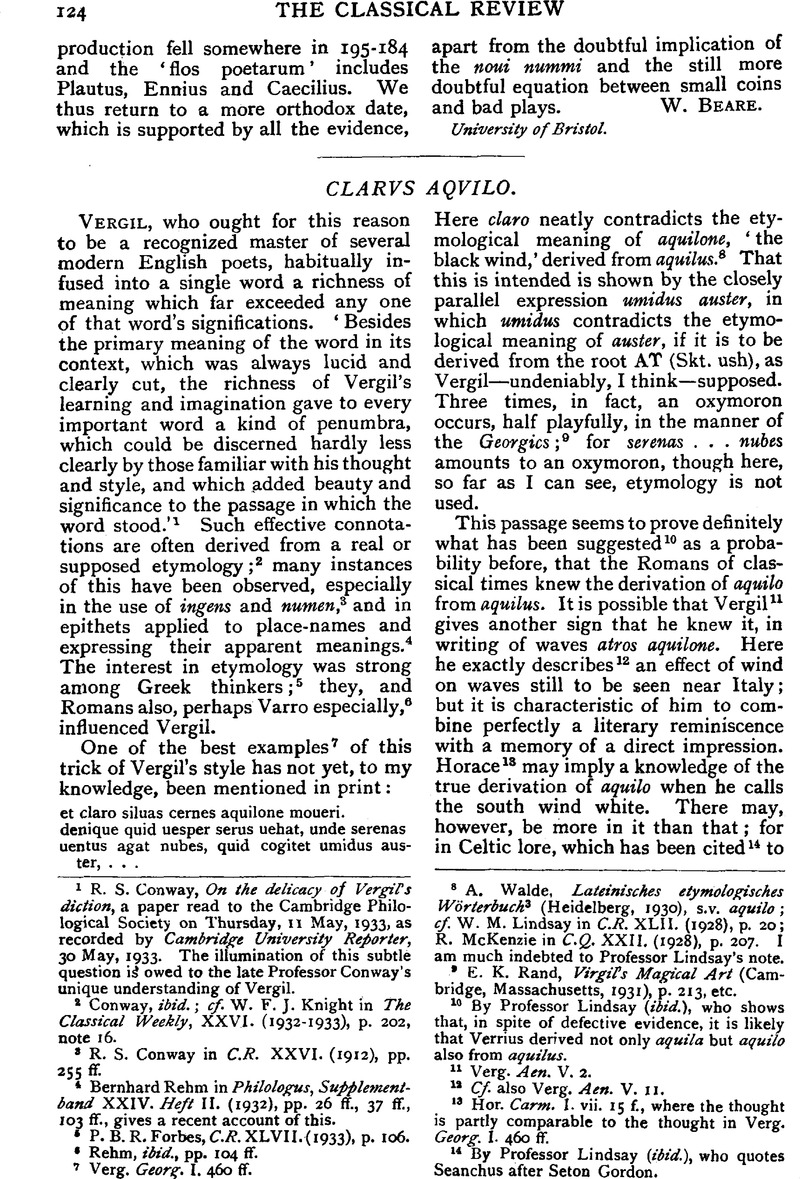No CrossRef data available.
Article contents
Clarvs Aqvilo
Published online by Cambridge University Press: 27 October 2009
Abstract

- Type
- Review Article
- Information
- Copyright
- Copyright © The Classical Association 1934
References
1 Conway, R. S., On the delicacy of Vergil's diction, a paper read to the Cambridge Philological Society on Thursday, II May, 1933Google Scholar, as recorded by Cambridge University Reporter, 30 May, 1933. The illumination of this subtle question is owed to the late Professor Conway's unique understanding of Vergil.
2 Conway, ibid.; cf. Knight, W. F. J. in The Classical Weekly, XXVI. (1932–1933), p. 202, note 16.Google Scholar
3 Conway, R. S. in C.R. XXVI. (1912), pp. 255 ffGoogle Scholar.
4 Rehm, Bernhard in Philologus, Supplementband XXIV. Heft II. (1932), pp. 26 ff.Google Scholar, 37 ff., 103 ff., gives a recent account of this.
5 Forbes, P. B. R., C.R. XLVII. (1933), p. 106.Google Scholar
6 Rehm, ibid., pp. 104 ff.
7 Verg, . Georg. I. 460 ffGoogle Scholar.
8 Walde, A., Lateinisches etymologisches Wörlerbuch3 (Heidelberg, 1930)Google Scholar, s.v. aquilo; cf. Lindsay, W. M. in C.R. XLII. (1928), p. 20Google Scholar; McKenzie, R. in C.Q. XXII. (1928), p. 207Google Scholar. I am much indebted to Professor Lindsay's note.
9 Rand, E. K., Virgil's Magical Art (Cambridge, Massachusetts, 1931), p. 213, etcCrossRefGoogle Scholar.
10 By Professor Lindsay (ibid.), who shows that, in spite of defective evidence, it is likely that Verrius derived not only aquila but aquilo also from aquilus.
11 Verg. Aen. V. 2.
12 Cf. also Verg. Aen. V. II.
13 Hor. Carm. I. vii. 15 f, where the thought is partly comparable to the thought in Verg. Georg. I. 460 ff.
14 By Professor Lindsay (ibid.), who quotes Seanchus after Seton Gordon.




